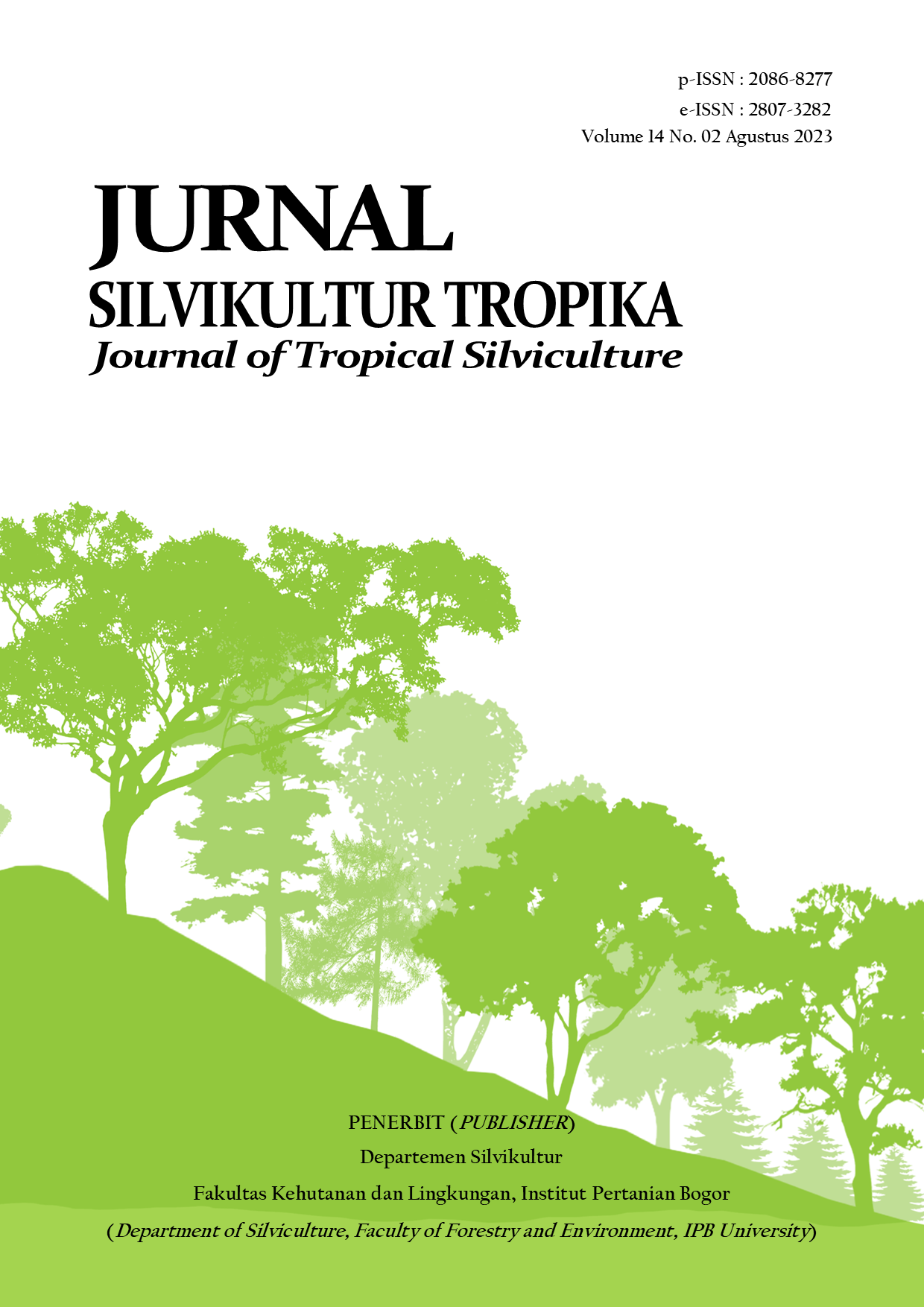Model Agroforestri di Desa Leimea Sorinbalo Kabupaten Ermera Timor-Leste
Abstract
Agroforestry is the management of optimal and sustainable land use, by combining forestry and agricultural activities in the same land management unit by taking into account physical, social, and economic environmental conditions. This research was carried out in Leimea Sorinbalo village, Ermera Regency, East Timor, in March and May 2021 using qualitative and quantitative methods. The data used in this study are data obtained directly from agroforestry farmers in Ermera District, East Timor by means of direct interviews with 30 respondents (farmers) regarding the agroforestry model with the help of questionnaires. Analysis of economic data using the three criteria of NPV, BCR and IRR, social and ecological analysis of Descriptive qualitative. The results of the financial analysis showed that the NPV was the results of the financial analysis showed that the NPV was $ 220,184.66, the BCR was 28.7 and the IRR was 35 %. The results the ecological analysis showed that the biodiversity is vanilla, chocolate, Agarwood teak, gamal, jackfruit, orange etc, and social analysis showed that the Local institutions and culture are studies on social aspects. The central institution that serves as a driving force for farmers The non-formal institution in Leimea Sorinbalo village is recorded only as a customary institution that maintains the preservation of agroforestry land through the application of customary laws.
Key words: Agroforestry model, ecologicalm, economy, social
Downloads
Copyright (c) 2023 Cristina Soares, Leti Sundawati, Budi Kuncahyo

This work is licensed under a Creative Commons Attribution 4.0 International License.










